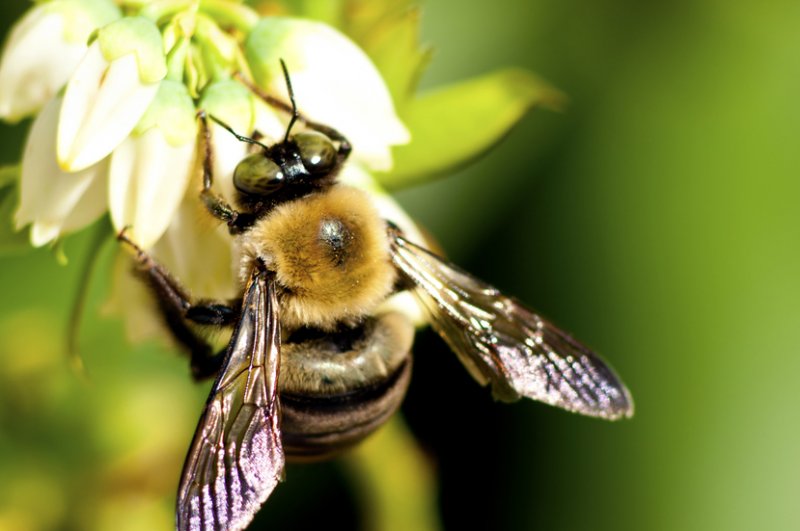
Aug. 2 (UPI) — A type of insecticide, called neonicotinoids, is harmful to bees when applied to commercial crops, even at levels on par with instructions on their labels, according to a study published Monday in the journal Proceedings of the Royal Society B: Biological Sciences.
Neonicotinoid insecticides are chemically similar to nicotine, and act on similar receptors in insects, meant to control pests that eat plants.
The widely used chemicals have been found, however, to harm beneficial insects the same as they do plant-consuming ones — and are more harmful when used at higher levels, such as in ornamental plants.
“Neonicotinoids are often used on food crops as a seed treatment,” Jacob Cecala, an entomolgist and lead author on the study, said in a press release.
“But they’re usually applied in higher amounts to ornamental plants for aesthetic reasons. The effects are deadly no matter how much the plants are watered.”
Researchers raised bees in a lab environment with flowing plants with and without insecticide applied and also at differing levels of irrigation.
The researchers found that 90% of bees subjected to neonicotinoid insecticides had trouble reproducing afterward, regardless of irrigation levels. While increased water made the incesticide less potent, the bees were still affected.
The findings back up a 2020 study on bee reproduction which found larval development in bees was delayed by 10 hours fowling exposure to neonicotinoids.
That study relied on a newly developed video technique allowing researchers to see inside beehives.
Researchers said at the time that their observations “could point to the disruptions in nursing behavior due to neonicotinoids described by other scientists.”
The insecticides caused less damage to bees when used in agricultural crops, researchers suggested, though other studies have suggested that may not always be the case.
In 2019, scientists found the insecticide was used in the commercial soybean to “negligible” benefits, though pesticide makers and farmers disagreed with the findings.
“It’s not as simple as ‘don’t use pesticides’ — sometimes they’re necessary,” Cecala said.
“However, people can look for a different class of insecticide, try to apply them on plants that aren’t attractive to bees or find biological methods of pest control,” Cecala said.